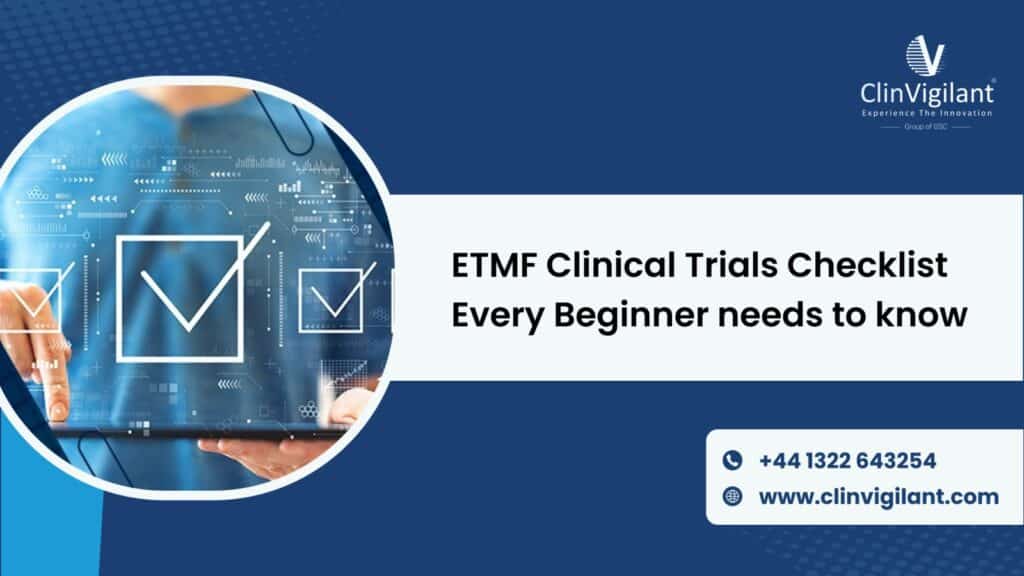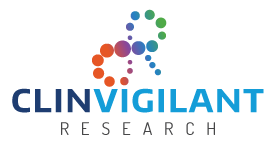
Technology has completely changed how clinical trials are administered and executed in today’s quick-paced industry. Using the Electronic Trial Master File in clinical trials is a technical development that has gained favor. By streamlining the administration of crucial trial documents, ETMF ensures data integrity, compliance, and accessibility. It is essential for success as a newcomer to the clinical trial environment to comprehend ETMF Clinical Trials and its importance. In this article, we’ll examine the essential elements of ETMF clinical trials, their advantages, and a thorough checklist to guarantee effective trial administration.
Recognizing the ETMF (Electronic Trial Master File)
All necessary information for a clinical study is collected in one place, called the study Electronic Trial Master File (ETMF). These records were formerly kept in paper format, which presented issues with accessibility, the possibility of mistakes, and laborious organization. The ETMF Clinical Trials digital representation, or ETMF, on the other hand, refers to a centralized, secure platform where all documents are stored electronically.
All significant trial documents, including research protocols, investigator handouts, written consent documentation, case report forms (CRFs), regulatory letters, tracking reports, and negative outcome reports, are kept centrally on the ETMF platform. These documents are crucial for preserving confidence in the clinical trial process. Suppose clinical research organizations (CROs) and sponsors convert from utilizing a ETMF that is based on paper to an electronic system. In that case, they may increase their efficiency, data security, and collaboration capacity.
The Benefits of ETMF in clinical trials
- Enhancing Data identification (ETMF): ETMF Clinical Trials ensures that the documents are not altered and maintain their identification during the trial. It establishes an audit trail, promoting openness and accountability, by recording any changes made to the documents and identifying the offenders. During audits and inspections, authorities may have confidence in the authenticity of the trial data thanks to the extensive paper trail.
- Enhanced Availability: Thanks to Electronic Trial Master File in clinical trials, trial participants located in any region of the globe may instantly acquire documents pertinent to the trial. This accessibility fosters simple communication, which hastens collaboration between sponsors, researchers, and regulators. It may be possible to reduce or eliminate the time lost waiting for members of the team to review, alter, or contribute to documents.
- Improved Compliance: Trial Master File in Clinical Trials promotes adherence to statutory obligations and industry standards. Allowing sponsors and CROs to keep paperwork aligned with Good Clinical Practice (GCP) standards lessens the burden of audits and inspections. Additionally, ETMF In Clinical Trial systems often provide compliance features like automated alerts for misplaced papers and document expirations that guarantee adherence to research timelines.
- Enhanced Sharing of Information and Productive Interaction: ETMF Clinical Trials platforms provide a secure setting that encourages collaboration and information sharing amongst all trial stakeholders. Documents, modifications, and comments are all made accessible in real-time to sponsors, researchers, monitors, and regulatory bodies. This makes for a more simplified process, allowing decisions to be made more quickly.
- Real-time document surveillance: The ETMF offers real-time document status tracking across the whole lifespan of a document, from creation to approval and archiving. By ensuring that all parties involved in the legal proceeding have access to the most current version of any pertinent documents and are aware of any revisions made, this function enhances transparency and accountability.
Important ETMF Elements in Clinical Trials
- Important Trial Materials: As was indicated previously, the Electronic Trial Master File in Clinical Trials should include all pertinent trial materials, such as the protocol, investigator’s pamphlet, informed permission forms, case report forms (CRFs), and surveillance reports. In addition to that, it has to contain any changes, updated safety information, and regulatory communications that are associated with the experiment.
- Metadata: Metadata offers document details, including version history, creation date, and accountable parties. Version control is aided by this, and document traceability is guaranteed. The metadata may include things like the titles of documents, the names of their authors, timestamps, the categories of documents, and the locations of their files.
- Security Precautions: All ETMF Clinical Trials platforms must comply with stringent security procedures in order to protect sensitive data from unauthorized access, data breaches, and other types of cyber attacks. This strategy includes implementing secure login protocols, data encryption, antivirus programs, and role-based access restrictions.
ETMF Clinical Trials Beginner’s Checklist
- Select the Appropriate ETMF Platform: Conduct research and choose an ETMF Clinical Trials platform that conforms with regulatory standards and is aligned with the needs of your trial. Think about things like how easy it is to use, how secure the data is, how big it can get, and how well it can work with other systems. Engage with the seller to learn about the platform’s features and make sure it satisfies the unique requirements of your organization.
- Define Document Naming Rules: Create clear and consistent naming rules for documents to decrease the likelihood of confusion and increase the efficiency of document searches. A naming standard that is clearly specified will make it easier for stakeholders to recognize the document’s content as well as its version and the context of the research.
- Establish Document Versioning: Use a Version Control System to Easily Keep Track of Changes to Your Documents. Verify that each version has been properly approved and clearly note any modifications. By using this procedure, you can be confident that everyone has access to the most up-to-date and correct document versions.
- Instruction and Onboarding: Provide thorough instruction on how to use the Electronic Trial Master File in Clinical Trials platform to all trial stakeholders. Make certain that everyone is aware of their duties and obligations regarding the management of trial materials. A smoother trial process and fewer mistakes will result from an early investment in adequate training.
- Conduct Periodic Quality Checks: It is essential that regular quality checks be carried out in order to guarantee that the papers being submitted in the ETMF Clinical Trials system are exhaustive, correct, and in the proper location. Examine the index, metadata, and connections between documents on a regular basis to spot and fix any discrepancies.
- Backup and Damage Recovery: To avoid data loss and guarantee company continuity, establish reliable backup as well as disaster recovery procedures. Make sure that the data in the ETMF is backed up on a regular basis and that the disaster recovery procedure is tested so that the data can be recovered if anything unexpected happens.
- Monitor Compliance: Consistently keep an eye on how well ETMF Clinical Trials procedures and industry rules are being followed. Any non-compliance concerns should be resolved quickly. When conducting internal audits, work with your quality management team to identify any possible gaps and areas for improvement.
Conclusion
The use of Electronic Trial Master Files in clinical trials has completely changed how trial records are handled. ETMFs provide a number of advantages over traditional trial management methods, including better data integrity, easier access, improved regulation, and cost effectiveness. Understanding the important elements of the ETMF Clinical Trials and adhering to a thorough checklist are crucial for a novice in the clinical trial environment to assure effective trial execution. By using ETMF technology, trial administration becomes more effective, freeing up researchers to concentrate on expanding medical knowledge and enhancing patient outcomes. The incorporation of ETMF Clinical Trials becomes a more important instrument in the quest for medical advancement and improving global healthcare as the clinical trial environment changes.

